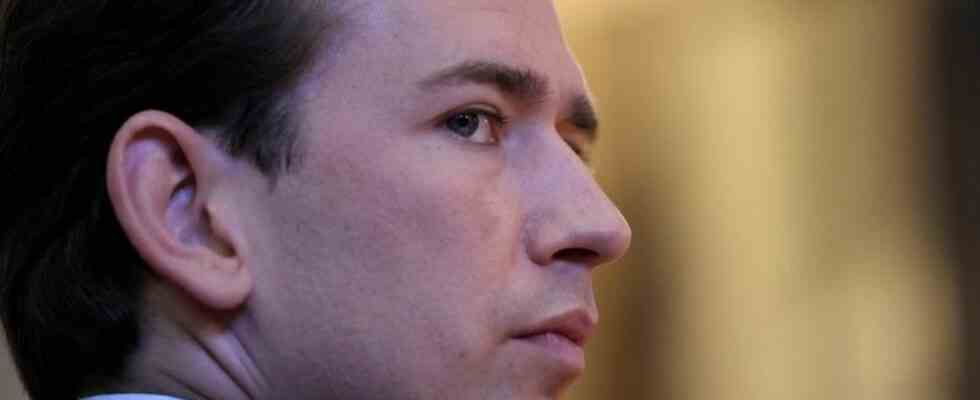Austria
ÖVP insider refuses to testify in the corruption committee
Austria’s ex-chancellor Sebastian Kurz during a visit to Belgrade. photo
© Darko Vojinovic/AP/dpa
The ÖVP insider Thomas Schmid unpacked the allegations of corruption against the party in front of the judiciary, but he did not want to say anything in front of the U-committee of the parliament. A victory on points for ex-Chancellor Kurz?
A former close confidant of Austria’s ex-Chancellor Sebastian Kurz surprisingly refused to testify before the ÖVP corruption committee. The former head of the Austrian state holding company Öbag, Thomas Schmid, announced on Thursday before the meeting that he would not answer any questions. Otherwise he runs the risk of incriminating himself, the 47-year-old continues. His previous statements to the public prosecutor’s office have not yet been completed. This is also a reason why he will not say anything. Even the threat of penalties did not deter him from his line.
In the investigative committee that has been running for almost a year, allegations of corruption against former ÖVP government members, including ex-Chancellor Sebastian Kurz, are to be clarified.
Due to the refusal to testify, the committee could not end at the beginning of December, contrary to plan, but could continue for another questioning of Schmid, it said. After the judicial clarification of the penalties, Schmid was then obliged to testify on certain issues, said SPÖ MP Jan Krainer.
Talkative in front of the judiciary
Schmid had already provided many details about the allegations against Kurz to the judiciary. According to his account, he acted on behalf of the ex-chancellor in the so-called advertisement affair. In return for the publication of beautified surveys in a tabloid newspaper, advertisements are said to have been paid for with tax money. In addition, Schmid accused ÖVP politicians and entrepreneurs of illegally awarding posts and intervening in tax matters. In short, against whom the judiciary is investigating for breach of trust and bribery, and the other accused reject the allegations or remain silent.
“Have you been put under pressure in the run-up to today’s statement, have you been threatened?” FPÖ MP Christian Hafenecker wanted to know. Hafenecker said he would work with the Ministry of Justice to ensure that Schmid would not be given leniency status because of his completely uncooperative attitude. “It’s absolutely incredible how you deal with the investigative committee,” said the FPÖ politician to the former top manager. Schmid was also silent on this.
From the point of view of political scientist Peter Filzmaier, Schmid’s approach initially means a point victory for Kurz, who is fighting at the level of public communication for Schmid and not him to be considered a liar. On the legal level, however, it is quite understandable that Schmid did not want to get into additional trouble before the committee. “There are gray areas in the subject areas of the questions that could go beyond what Schmid has previously admitted,” said Filzmaier.
“Scandalous Picture”
Schmid had revealed himself hoping for a status as a key witness for the public prosecutor. In the course of corruption investigations, his mobile phone was confiscated in autumn 2019. The Öbag boss at the time had deleted Whatsapp and other messages. However, more than 300,000 chat messages could be restored from the cloud storage and from an external hard drive.
From the opposition’s point of view, the chats paint a scandalous picture. Kurz and his team, as well as the conservative ÖVP, tried to increase their influence illegally, according to the criticism. “For power lust, concerns, morality and ethical principles were thrown overboard – among the country’s political elite, among millionaires and billionaires, among media managers,” wrote the news magazine “News”.
The ÖVP, spoiled by power, has lost popularity. In the case of new elections, according to a survey by the Institute for Demoscopy and Data Analysis (IFDD), it would only get around 20 percent of the votes – and would thus be behind the social-democratic SPÖ and the right-wing FPÖ. According to another survey by the institute, 83 percent of Austrians now believe that the country’s politicians are corrupt.
Investigative committee dossier from the “Kleine Zeitung” on Schmid’s mobile phone

